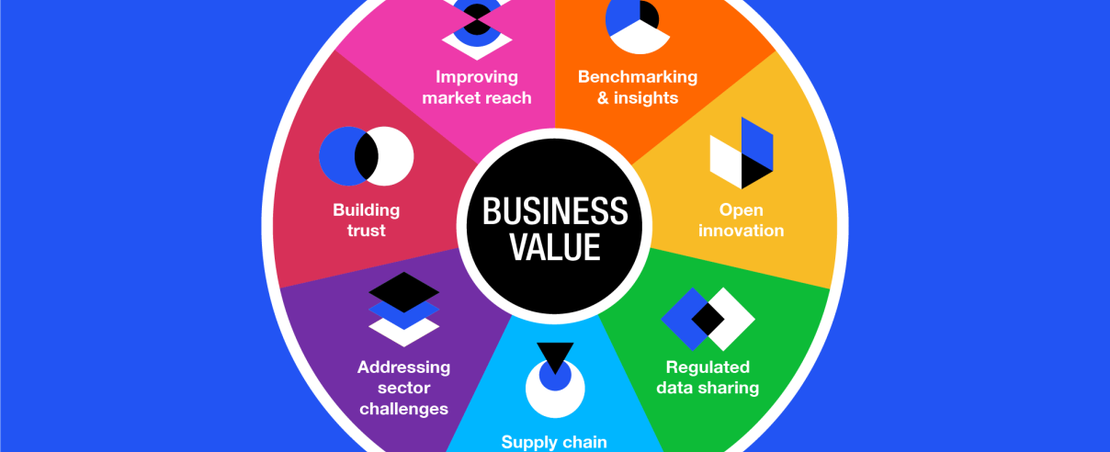
The Covid-19 crisis has shed light on the strengths and weaknesses of supply chains in various sectors, ranging from engineering to food. Stuart Coleman, Business Development Director at the ODI shares why it’s important to increase access to data and data sharing to maximise supply chain efficiency
Global supply chains have been particularly affected as lockdown measures have made their processes more complex, making it difficult for them to remain agile, operate efficiently and adapt to a changing demand.
Although organisations such as Nestlé have displayed strong agility throughout the crisis, other food giants have struggled with the drop in air traffic which has massively disrupted their supply chains and resulted in a plunge in prices. In some countries, such as India, cancellation of flights has been a challenge for businesses selling goods that have a limited shelf life. For example, mangos from India would usually travel in the holds of passenger flights, allowing farmers and businesses to make great profit. With the disruptions prompted by Covid-19, businesses have unfortunately had to lower their prices for such products. Likewise, due to a halt in manufacturing, the automotive industry has suffered a record fall in new car registrations.
Remote working has heightened the need for greater visibility across all aspects of supply chains due to their fragmented nature. In fact, businesses tend to lack an integral view of the entire production chain, which often compromises the implementation of efficient operational decisions. Meanwhile, with greater visibility, companies could boost their agility, but also collaborate with organisations within the same sector to help solve issues.
Not only have these challenges affected the vulnerability of supply chains, it has highlighted the importance of the value of increased access to data and data sharing in building maximising efficiency.
Data sharing can revolutionise supply chains
Better communication and the right information at the right time could be crucial for the future success of supply chain operations. If supply chains could utilise a common format and standard to share data with partners, suppliers, and other relevant parties increased trust could be developed as well as more efficiency.
A recent ODI report produced in collaboration with Lloyd’s Register Foundation, shows that increased access to data has resulted in improving engineering, construction and manufacturing supply chains by optimising the design, delivery and maintenance of infrastructure assets. What is more, sharing data, insight and knowledge with global supply chain members can help identify and manage risks in a quick and efficient way, reducing many barriers to effective production. Done right, data sharing has the potential of helping organisations make better operational decisions to help increase production, reduce costs and manage commercial risks.
Take Airbus, one of our recently published case studies whose supply chain has experienced the benefits of data sharing. In collaboration with supply chain and academic partners, including Rolls Royce, Airbus has launched the APROCONE (Advanced Product Concept Analysis Environment) project to help improve the design process across the aerospace supply chain for the benefit of all parties involved. Allowing a secure exchange and design data sharing amongst partners, this platform facilitated increased access to real-time engineering data which in turn resulted in much faster and more accurate product design. Processes that used to take weeks to complete are now implemented in a matter of a few hours.
Data sharing has also enabled Airbus to collaborate and build trust in its sector with a variety of stakeholders, including research organisations and new technology providers.
As governments around the world begin to ease lockdown measures, businesses are looking into returning to a new normal, and that involves building more resilience into their supply chains. Businesses that share and open up data in their supply chains will have the opportunity to thrive. to increase access to information that will drive innovation and support research.
The ODI can help and support
The ODI can provide support for better data sharing through free online tools, including the Data Ecosystem Mapping tool, the Data Skills Framework and the Data Ethics Canvas found in the Data Toolkit for Business, to help businesses identify and leverage new business opportunities through data sharing. Besides this toolkit, the ODI can help through practical and insightful webinars on various topics, including supply chain optimisation. The ODI will be hosting a webinar on 29th July in collaboration with Airbus to discuss how businesses can leverage data sharing to recover from Covid-19.
Visit our website to learn more about the Supply Chain Optimisation webinar.